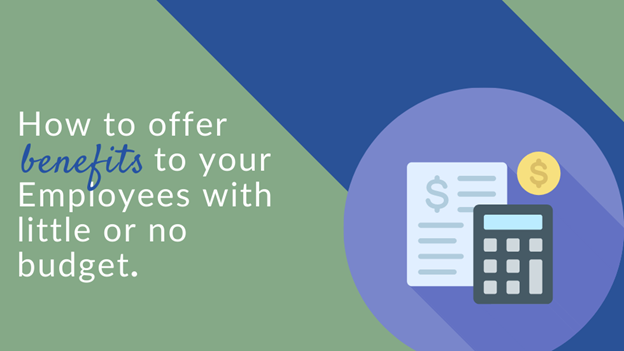The cost of everything, from groceries to gas, is rising these days. Healthcare costs are no exception.
Are you concerned about how increasing healthcare costs will affect your business’s budget and your ability to offer your
employees sufficient insurance benefits?
If so, you’ll be glad to learn that you can offer various benefits without spending extra money. The solution is voluntary benefits.
Keep reading to learn about how voluntary benefits work, the perks that come with offering them, and how you can choose the
best ones for your employees.
What Are Voluntary Benefits?
Voluntary benefits go by several other names, including the following:
- Employee-paid benefits
- Supplemental benefits
- Supplemental Insurance
- Fringe benefits
An employer offers these benefits. However, they can be paid for by employees as payroll deductions (money withheld from
the employee’s paycheck).
Voluntary benefits are extra benefits available outside traditional insurance offerings like medical or retirement coverage.
The employer doesn’t necessarily have to pay for these benefits directly, making them an excellent choice for businesses with
tight budgets. The insurance cost for the employee is also (in most cases) lower because the provider gives the employer a
group discount.
Types of Voluntary Benefits
When it comes to voluntary benefits, employers can give their employees various options. The following are some of the most
well-known and frequently offered types:
Health Benefits
Beyond traditional health insurance, employers may also offer their team supplemental health insurance.
Standard options include critical illness insurance, accident insurance, and emergency hospital transportation insurance. Some
employers also allow employees to pay for telehealth access or disability insurance.
Dental Benefits
Not all employers include dental insurance in their benefits package. If this is the case, they might offer voluntary dental
benefits so employees can get affordable cleanings and fillings.
Supplemental dental insurance can also fill in gaps that traditional dental plans might not cover. For example, voluntary dental
benefits might include coverage for sealants, crowns, dentures, or tooth removal.
Vision Benefits
Vision care isn’t always included in traditional health insurance plans, either.
With voluntary vision insurance, employees can get access to low-cost eye exams and save money on glasses or contact
lenses. Some vision plans also cover laser eye surgery.
Security Benefits
In addition to health and wellness benefits like those listed above, employers might also offer supplemental security benefits.
Some popular choices include life insurance and identity theft insurance.
Why Offer Voluntary Benefits?
Voluntary benefits provide a lot of (no pun intended) benefits for employers and employees. The following are some of the tops
reasons why employers might want to consider offering them:
Improve Recruitment
New research shows that 70 percent of employees are more likely to work for an employer that offers voluntary benefits.
If you’re struggling to attract top talent to your company, increasing the number and types of employee-paid benefits you offer
could help you improve recruitment without spending extra money.
Increase Employee Loyalty
Job seekers aren’t just more likely to choose an employer that offers supplemental insurance options. They’re also more likely
to stick with that employer long-term.
If you want to reduce employee turnover at your company and encourage your top employees to stay with you, consider
voluntary benefits. This additional offering helps you provide more perks without raising your company’s already-expensive
healthcare costs.
Avoid Additional Expenses
Speaking of healthcare costs, voluntary benefits are also great for employers because they help you expand your benefits
offerings without incurring additional fees.
In 2023, the average cost of healthcare is expected to rise by 6.5 percent and exceed $13,800 per employee. Voluntary
benefits might be particularly enticing if you already wish your budget to be strained by these increased expenses.
Boost Productivity and Performance
Not only will employees be easier to recruit and more loyal when their employer offers voluntary benefits, but they’re also likely
to be more productive on the job.
When employees’ essential health and security needs are met, it’s easier for them to focus on their work, get more done, and
improve their work quality.
Employees with access to more insurance options may also be healthier and less likely to miss work because they’re sick.
Why Should Employees Invest in Voluntary Benefits
Voluntary benefits aren’t just advantageous for you as an employer. They also benefit your employees in the following ways:
Lower Costs
Employers aren’t the only ones feeling the strain of rising healthcare costs. Employees are also struggling with more
expenses.
By offering voluntary benefits, employers can help their employees manage extra expenses.
Providing supplemental benefits allows employees to choose the coverage they want and need. These benefits are also
available at a discounted group rate, meaning employees can get extra coverage and save money simultaneously.
Financial Safety Net
Voluntary benefits also provide employees with a financial safety net and peace of mind.
Ideally, nobody would end up in a situation where they needed disability insurance or critical illness insurance. However, it’s
better to have that coverage and not need it rather than the inverse.
Knowing they have a safety net can reassure employees and help them feel more confident.
Access to Vetted Providers
These days, a practically limitless number of options exist for supplemental health insurance, dental insurance, vision
insurance, etc.
It can be tricky for employees to navigate all the options and choose the best one for their needs. When their employer offers
voluntary benefits, the employee can rest easy knowing they’re choosing from vetted providers that offer cost-effective,
legitimate services.
Flexible Coverage Options
Voluntary benefits are flexible. They allow employees to choose the coverage that matters most to them and pass on the
options they don’t want or need.
For example, some employees might not care about life insurance because they have coverage through their spouse’s
employer. However, they might need dental insurance and be glad their employer lets them pay a bit extra to add that to their
policy.
How to Choose Voluntary Employee Benefits
You likely understand the benefits of offering voluntary benefits at this point. However, you might also be wondering how you
choose the best options for your business and employees.
If you’re interested in providing voluntary benefits, consider working with an insurance consultant who can help you research
different plans and find the right ones.
When reviewing your coverage options, you can also ask yourself these questions. They’ll help you choose the best types of
coverage for your staff:
What Are My Current Business Goals?
A good starting point is to consider your short-term and long-term business goals.
Do you want to improve your hiring process or reduce employee turnover? Do you want to boost employee productivity or
engagement rates?
Once you know what you want to accomplish, you can look for benefits options that help you achieve those goals.
How Does My Benefits Plan Compare to My Competitors?
If your competitors offer superior insurance coverage, you might struggle to attract top-tier talent or keep them around.
Do some research to find out what benefits your competitors provide to their employees. Then, look for insurance options that
help you match (or at least get close to matching) their offerings.
What Benefits Do My Employees Value?
Next, think about your employees.
What kinds of benefits will they value the most? What’s missing from their current insurance coverage?
For example, if you don’t currently have dental coverage or a life insurance option, those might be great places to start.
You might also want to distribute a survey or talk to your employees face-to-face (depending on the size of your team) to find
out which voluntary benefits they’re most likely to invest in.
Does the Policy Have Employee Limits?
A potential downside to voluntary insurance benefits is that they sometimes have minimum staff requirements for your
the company must meet.
For example, the provider might require you to employ at least five people before they can take advantage of the group
discount.
If you run a small business and don’t have many employees, be sure to find plans that don’t have a minimum staff
requirement.
Does the Policy Have Eligibility Requirements?
Along with minimum staff requirements, some policies have other eligibility requirements.
Part-time employees might need to work a minimum number of hours per week to qualify, or employees might need to fall
between a particular age range.
Check all eligibility requirements before choosing a plan to ensure you aren’t excluding your employees.
When in Doubt, Ask an Expert
Do voluntary benefits seem like a good option for you and your employees? Are you overwhelmed by the additional research
needed to choose the best policies?
If you want to offer voluntary benefits but don’t know where to start, we’re here for you at Commercial Benefits Services.
For over three decades, our insurance consultants have helped businesses of all sizes to review insurance plans, develop the
right policies for their teams, and ensure everyone gets appropriate coverage.
CBS will guide you through the ins and outs of employee insurance plans and help you choose the best option for your
business, your team, and your budget.







